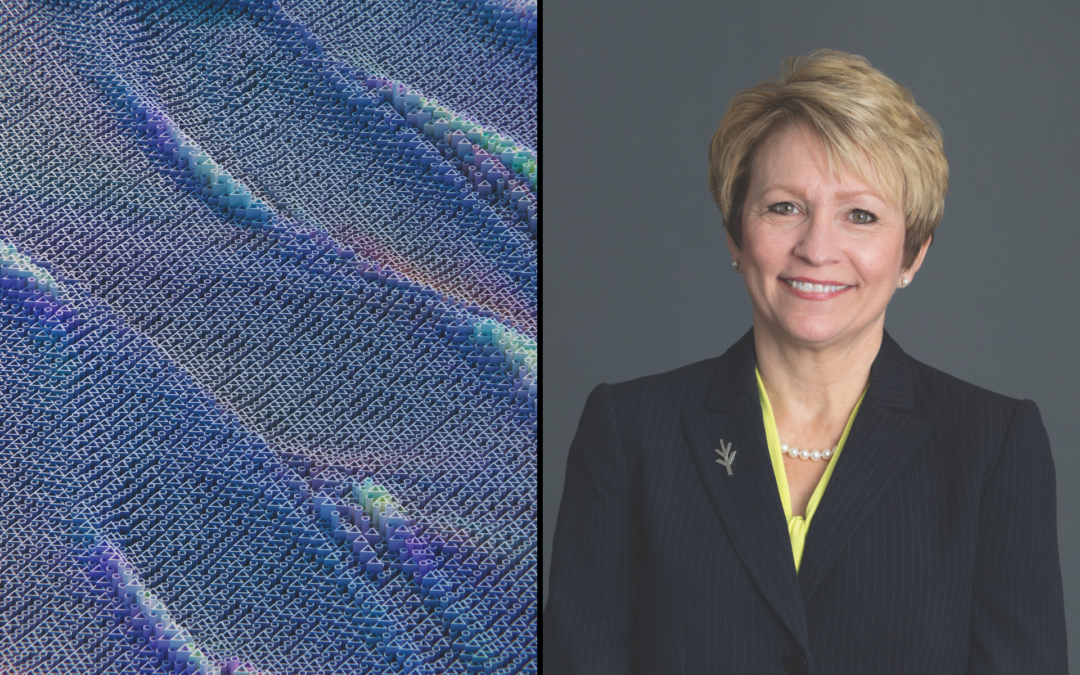
Ivy Tech Community College: Pioneering AI Integration in Higher Education at the Speed of Life
By President Sue Ellspermann, Ivy Tech Community College
As students navigate their curiosity and concerns about artificial intelligence, it’s crucial to equip them with the knowledge and skills needed to thrive in an ever-evolving world and workplace. By embracing AI, we can enhance student readiness for a future that is rapidly evolving.
Here are some of the ways Ivy Tech is at the forefront of integrating AI into its educational framework.
Using AI to Customize Learning Paths
AI’s ability to analyze vast amounts of data allows for personalization of learning experiences tailored to individual student needs. We’re exploring how AI-driven platforms can improve customized learning paths for students. AI enhancement of advising and faculty led approaches not only improves student engagement but also academic outcomes, by addressing specific learning gaps.
Another key initiative was the Credit for Prior Learning Project, an in-depth review of Ivy Tech’s course catalog and crosswalks. This project aimed to explore opportunities for students to earn credits by recognizing prior learning experiences for courses beyond the nine pre-established crosswalks.
AI Use in the Classroom
In our classrooms, AI is fostering innovation. Ivy Tech has created a traffic light visual guide for use in class syllabi, allowing students to quickly understand appropriate AI use in their courses. This guide categorizes courses into open AI use, conditional use, or limited use, ensuring that AI integration aligns with course objectives and enhances the learning experience.
Also, our English faculty are piloting AI generative writing assignments. These assignments encourage students to explore multiple possibilities for a draft’s structure, promoting creativity and critical thinking. This approach not only enhances writing skills but also prepares students for a future where AI competency is essential for effective communication and collaboration.
Ivy Tech emphasizes academic freedom within the AI ecosystem, ensuring that faculty and students can freely explore, discuss, and innovate with AI technologies. This commitment fosters a scholarly environment where diverse ideas and critical thinking thrive.
To support AI adoption and integration, Ivy Tech has established a statewide AI Steering Committee. This committee explores the current AI landscape, facilitates discussions among faculty, staff, and students, and drives initiatives that encourage active engagement with AI.
Ivy Tech has also published guiding principles to support an ongoing conversation about understanding and using AI responsibly.
Aligning AI Education with Workforce Needs
One of the most significant impacts of AI in higher education is its ability to align educational programs with the evolving needs of the workforce.
Ivy Tech recently piloted Prompt Engineering Workshops at several campuses. These workshops were designed to help people interact more effectively with AI Chatbots like ChatGPT and Gemini, producing more relevant, accurate, and comprehensive outputs.
We also tested NotebookLM to create simulated podcasts with AI hosts acting as the student and employer in a hypothetical job interview and as the workforce personnel and employer in a hypothetical industry engagement session on skills training.
Using AI for Operational Efficiencies
Ivy Tech also crafted AI Prompt Design Guides for 44 departments, providing targeted support on how to use AI effectively within each department’s unique context.
The college also explored GPT models customized for internal use. A GPT focused on the Employee Handbook and another on the Academic Support & Operations Manual (ASOM) provided streamlined, on-demand access to critical policy information. Such tailored models can serve as real-time resources for employees, reducing time spent searching for information and increasing efficiency.
Moreover, Ivy Tech has tested a suite of AI tools for their features and benefits:
- Gamma was used to build dynamic presentations and documents that could be used as instructional and marketing materials.
- Flowrite facilitated automation in email response generation.
- Pictory AI was used to develop a video on the Value of Entrepreneurship Education from a script to communicate crucial information about an Entrepreneurship Elective to curriculum committees.
- A pilot of Copilot with 60 users was integrated into Microsoft 365 applications. Some features included automated document creation and formatting, analytics and insights, email and chat summaries, and email response generation. The platform showed significant promise in streamlining administrative processes and enhancing collaboration.
At Ivy Tech Community College, AI is not just a tool but a transformative force that is reshaping education. By embracing AI responsibly, Ivy Tech is preparing students to be adaptable, ethical, and equipped with the skills necessary for success in a world transforming at the speed of life.






Recent Comments